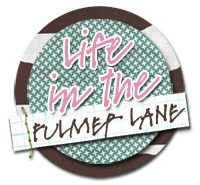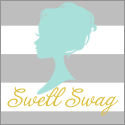My boss suggested I read Deep Fathom


I'm also inspired by Jen Lancaster's reading list on her blog, jennsylvanina. I'd like to read all of her suggestions on my iPhone kindle app, or wait for the price to drop on Amazon.
The Wilder Life by Wendy McClure I loved Laura Ingalls Wilder growing up. I don't think I can pass up someone else's research into the lifestyle and thoughts of one of my favorite childhood authors.
I loved Laura Ingalls Wilder growing up. I don't think I can pass up someone else's research into the lifestyle and thoughts of one of my favorite childhood authors.
Lies That Chelsea Handler Told Me by, Chelsea's friends and family I haven't read a book by Chelsea Handler that I didn't laugh hysterically with, so I'm excited for her next memoir!
Maine by J. Courtney Sullivan
by J. Courtney Sullivan
I'm curious about this next book because it has a beautiful and striking cover. I know you're not suppose to judge a book by its cover (and I have picked up pretty covered books and HATED them) but I'm tempted to read it "just because"......
Here's a review from amazon.com:
"Everyone has dark secrets. It’s why God invented confession and booze, two balms frequently employed in Sullivan’s well-wrought sophomore effort. Alice Brennan is Irish American through and through, the daughter of a cop, a good Catholic girl so outwardly pure that she’s a candidate for the papacy. . . . As Sullivan’s tale unfolds, there are plenty of reasons that Alice might wish to avoid taking too close a look at her life: There’s tragedy and heartbreak around every corner, as there is in every life. . . . Sullivan spins a leisurely yarn that looks into why people do the things they do—particularly when it comes to drinking and churchgoing—and why the best-laid plans are always the ones the devil monkeys with the most thoroughly. The story will be particularly meaningful to Catholic women, though there are no barriers to entry for those who are not of that faith. Mature, thoughtful, even meditative at times—but also quite entertaining." –Kirkus
There are also sevearl titles on NPR's upcoming summer reading list that I'm interested in:
Bright's Passage: A Novel
Here's the review from npr.com. Hardcover, 208 pages, The Dial Press, list price: $22, pub. date: June 28 Josh Ritter, folk singer, has a debut novel coming out that reads a lot like one of his long, mythical songs: Henry Bright returns to West Virginia after fighting in World War I to find that his wife has died and he must raise an infant son on his own. Fortunately, he has the help of an angel that has followed him from the battlefields of France to Appalachia, an angel who wants to assist Bright and his son on their treacherous travels. Bright's world is one of nightmares and forest fires, haunting war memories and hope for his child's future. The novel is written in Ritter's unique voice — that of a troubadour and soothsaying songwriter, and it is as pleasing to read as his music is to hear.
Once Upon a River
Here's the review from npr.com. Hardcover, 348 pages, W.W. Norton, list price: $25.95, pub. date: July 5 Bonnie Jo Campbell's last story collection, American Salvage, won her nominations for the National Book Award and National Book Critic's Circle Award, and now she has emerged with an anticipated new full-length novel, a kind of Huckleberry Finn through female eyes. Sixteen-year-old Margo Crane decides to sail the Stark River by herself after her father's death, armed with scant supplies and a biography of Annie Oakley. As Publisher's Weekly wrote of Campbell's wonderful heroine, she is "never a cry baby, as able as Sacagawea, with a strong and unapologetic sexuality." Margo is the kind of narrator you want to stick with, even throughout difficulty — hers is the kind of voice you miss after the book ends.
The Compass Of Pleasure: How Our Brains Make Fatty Foods, Orgasm, Exercise, Marijuana, Generosity, Vodka, Learning, And Gambling Feel So Good
Here's the review from npr.com. Hardcover, 240 pages, Viking, list price: $26.95 Unless you're at the kind of cookout where words like amygdala and dopamine get tossed around instead of Frisbees, you're probably not thinking too intently about what's going on in your "medial forebrain pleasure circuit." That might change if you read neuroscientist David J. Linden's The Compass of Pleasure, a hugely entertaining look at why we enjoy the things we enjoy. They're not all vices, either — your brain can be stimulated by sex and drugs, but it also derives pleasure from working out and, believe it or not, paying your taxes. There's hardcore biology here, but it's tempered with personal anecdotes, penetrating observations and quotes from the likes of comedian Mitch Hedberg and Wilco frontman Jeff Tweedy. If you're science-phobic, don't worry: Linden is incredibly smart, but comes across as the funny, patient professor you wish you'd had in college.
The Optimism Bias: A Tour Of The Irrationally Positive Brain
Here's the review from npr.com. Hardcover, 272 pages, Pantheon, list price: $25.95 Even the most cheerful and upbeat among us might be tempted to bang our head against a wall if we are forced to hear "Don't Worry, Be Happy" one more time. But as Tali Sharot points out in her fascinating new book, The Optimism Bias, that stubbornly sunny attitude is not necessarily what optimism means. Even if you're a dedicated cynic, you might be surprised to learn that your brain is wearing rose-colored glasses, whether you like it or not.
Drawing from biology and psychology — as well as from such unlikely sources as the Los Angeles Lakers, Shirley Temple and Guinness stout — London-based scientist Sharot explains why the brains of most people are programmed to predict happy endings in all facets of our lives. Hope isn't just a campaign slogan, she argues; it's an instinct of self-preservation. What your irrepressibly chipper friends have been telling you is right: studies show that optimists tend to live longer and pessimists die younger. Optimism might just be your mind playing tricks on you, but it turns out there's a good reason for that.
What are you reading this summer?































1 comment:
Hey Emily... your fellow Anthro party shopper ... Stephanie.. here. I just read The Wilder Life and really enjoyed it. (She is from Chicago and has been doing signings all of the city and burbs.)
Post a Comment